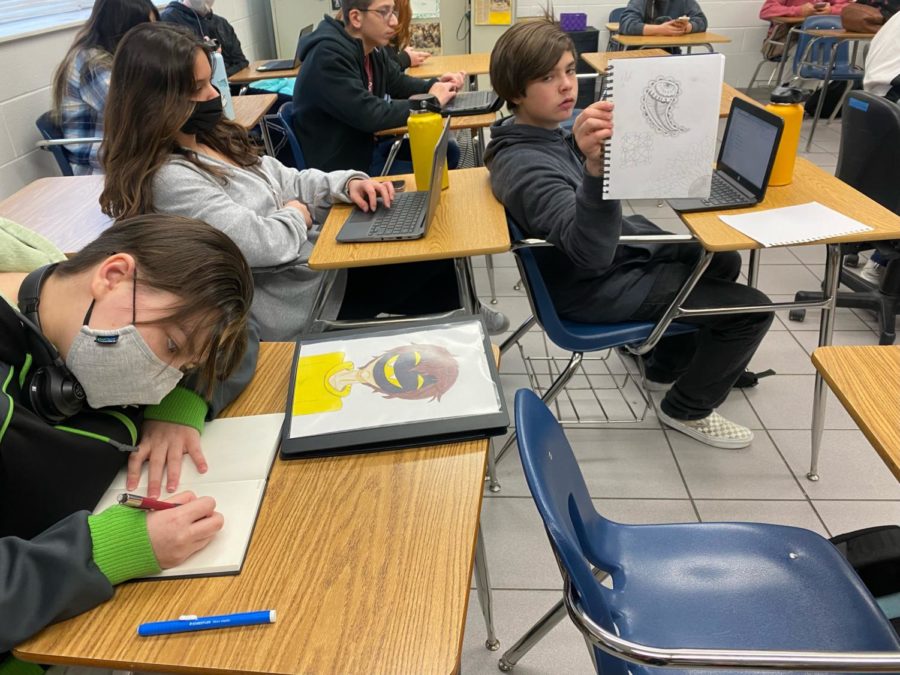Mental health matters too
Many students face anxiety on the other side of the pandemic
Freshman Kylee Charoenpojana and Jayden Duagan sketch in advisory as a way to relieve stress on Jan. 6.
February 9, 2022
Anxiety and its effect on students is nothing new. In recent times however, the list of potential anxiety triggering obstacles has continued to rise.
The usual culprits range from exams to college applications, but recently those problems have been heightened in everyday activities.
With the ongoing pandemic and more recent school closures due to winter weather storms, adjusting to the unpredictability of the current environment has never been more challenging for students and faculty alike.
“I think [classes] and the fact that students want to do so many things and have such restricted time cause anxiety along with them wanting to do well in everything that they do,” said AP Human Geography teacher, Stasia LaRoche.
According to the ‘American Psychological Association’, studies show that average kids today report more anxiety than child psychiatric patients in the 1950’s. The ‘American Academy of Pediatrics’ maintains that these levels have since gone up due to the spread of COVID-19 in recent years.
“I think [COVID-19] has increased student anxiety because there’s a whole other level of things for kids to worry about,” said LaRoche. “Whether or not they are contagious, or whether or not they get sick, or whether they will take it home and get family sick causes a lot of anxiety for students.”
All of this on top of an overwhelming school workload, social anxiety, and family or health problems have left many students facing increased levels of anxiety.
“My anxiety is mainly caused by my own expectations for myself, comparing them to others, and worrying about what others will think of me if I don’t meet my own expectations,” said freshman Devin White.
For some, time constraints with school work alongside extracurricular activities combined can also cause a buildup of stress and anxious feelings.
“School aggravates [my stress] in the sense that it makes it so hard to coordinate and manage time and tasks,” said Devin.
Anxiety is considered an intense stressful worry or fear about everyday situations, and although anxiety is not curable, there are methods to reduce it.
“I slow down what I’m doing or push through and finish whatever is giving me stress,” said freshman Ben Tignor.
However, the first step in addressing anxiety for students may be learning just how resolvable anxiety can be with stress management techniques.
“I don’t think we can avoid anxiety, but I think we need to teach students how to deal with it so it doesn’t have to be a negative impact on them,” said LaRoche


